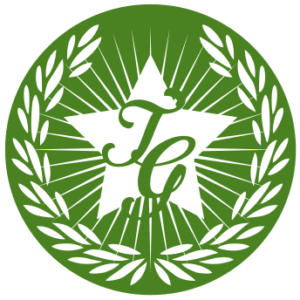On lived experience in the academy
Lived experience and academic knowledge are not the same thing; in fact, you could comfortably posit them as diametrically opposed. This is not to say that lived experience does not belong in the academy, but simply to make a distinction between the two forms of knowledge. I do not see them as competing, and in the best of worlds, I think they are mutually supportive, but they are not the same thing. This may seem obvious to some, but there has been a rising trend for some time now to uncritically incorporate lived experience into the academy in ways I think are problematic.
I do not want to create a hierarchy here and in fact, I think it is the tacit or unconscious acceptance of a hierarchy which has created the problem in the first place. So, when I make the distinctions I am making, think of them as domains separated vertically rather than horizontally. They are beside one another, rather than above and below.
In my ideal world, academic knowledge is directed and bolstered by lived experience, and lived experience is contextualised with the rigour and breadth of academic knowledge. Each form of knowledge production adds something to the other, but they are not equivalents. You cannot substitute lived experience for academic rigour and claim to be doing academic work, just as you cannot claim that book knowledge is the same thing as actually living through an experience.
I have noticed a rising trend in students writing master’s dissertations and even PhD theses on the basis of lived experience. Some barely even cite, so much are they basing their work on lived experience. This, for me, is shocking, but worse is that I know these students are being given passing grades by academics who should know better.
When I work with young people as an academic coach, I always emphasise that academia is basically a giant conversation between scholars. I encourage them to think of their essays as joining that conversation. I explain that when an academic ‘speaks’, everything they say has to be referenced because this functions as a form of ‘fact checking’. We are each building upon, or breaking apart, what has been said before. So as well as showing their lecturer that they have done their reading, referencing shows how your understanding fits within the giant conversation that academia is.
Academic knowledge is related to the world of ideas and thoughts and is not inherently practical, which is also why I find the notion of ‘practice-based PhDs’ oxymoronic. This distinction between practical and academic knowledge is why we used to have technical colleges as well as universities, and in fact, the erosion of boundaries that is occurring between lived and academic forms of knowledge is related to the collapse of technical colleges. Both are about implicit hierarchies whereby academic knowledge is held up as the most meritorious or valuable knowledge, even as it is simultaneously diluted and devalued by the inclusion of all things within it.
Nowadays there are a bunch of garbage degrees not because the subject matter is not worth studying, but because it is being studied in the wrong way. Some things need to be learnt by doing, and no amount of reading or writing about them will make you genuinely knowledgable about the subject. This is why technical colleges existed and why they need to be brought back. I want to be treated by a nurse who qualified by being trained on the job for three years in some form of apprenticeship, not one who became qualified by reading and writing about how to do the job (albeit with small placements as well).
I think the polytechnics were subsumed into universities because of hierarchies of knowledge. Somehow academic forms of knowledge came to be seen, if not as the only form of genuine knowledge, then certainly as the most valuable form of knowledge. I think this is likely related to shifts in patterns of working the UK: the more people became desk monkeys, the less any other form of work and training was valued. It’s why the trades are so diminished, as people sought status and money in white collar jobs. (Although more fool them, because a good tradesperson makes bank and probably has a more fulfilling job than most desk workers.)
The collapse of boundaries between lived experience and academic knowledge is underpinned by a similar valuing of knowledge which has not been properly acknowledged nor interrogated. Rather than allowing lived experience to stand on its own legs and have its own value, it is attempting to reclassify itself as academic knowledge. As I am fond of saying to young people I coach: if you want to just give your opinion, go and be a journalist (since that is all journalism seems to be nowadays), but if you want to do a degree, you need to read and you need to cite.
If you want to use yourself as your sole source of authority, go ahead, but that is not academic knowledge, that is lived experience. They are both valuable but they are not the same thing. If you want to get a degree, and especially if you want to get a postgraduate degree, you can lead from your lived experience, but you cannot end there. You need to place what you know to be true for yourself (and perhaps also your peers) within a context greater than self, within the giant, centuries long conversation that academia is.
